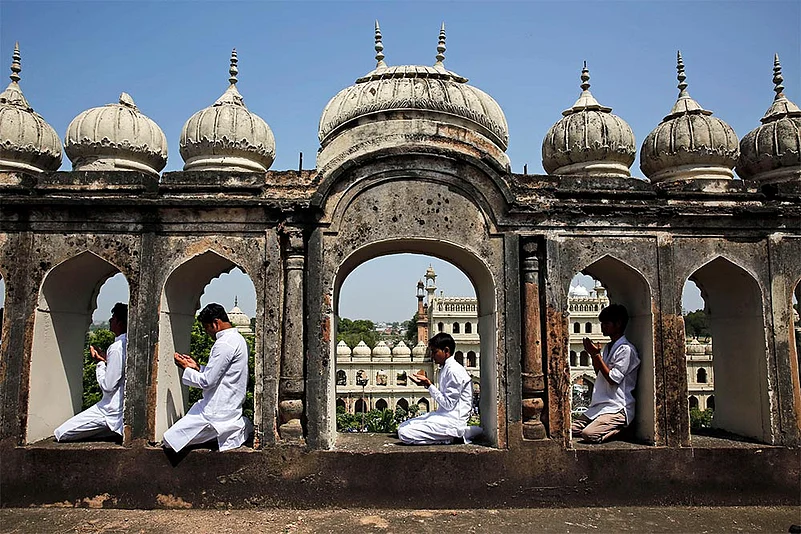That political journalists are more likely to find themselves on a spiral of cynicism is a truism less acknowledged than the one attributed to ordinary citizenry. And when the journalist is a veteran correspondent with over four decades of reporting on wars, elections, riots and politics, scepticism, even disenchantment, is inevitable. However Saeed Naqvi’s Being the Other is not merely a picture of dark disquiet; it is a relentless documenting of failures on the part of leaders, the state and virtually all of civil society. And such is his bitterness, such is his aversion to the word ‘secular’ (he prefers ‘multiculturalism’) that Naqvi goes so far as to say, “Partition, in a way, was the gift the Congress gave to the Hindu right, which in the fullness of time, is today’s Hindutva.” Sparing none, not even Gandhi, he goes on to declare “...even for Nehru, like all the other leaders, including the Mahatma, the secular project was negotiable”.
The only solace Naqvi finds is in the past, especially his childhood and youth in Awadh, which he holds up as a cradle of all that was once good and nurturing and harmonious. His “remembering eyes” repeatedly fall back upon scenes from the qasbah of Mustafabad, “that crucible of tolerance”, where his ancestral home still survives among the debris of a “vanished syncretic Hindu-Muslim culture”. A clue to Naqvi’s resentment lies in what he experienced at an early age: “The hypocritical silence adopted in the early years of Partition began to putrefy...and turned into closet communalism.”
Holding the Congress, and Nehru in particular, responsible for the many sins of omission and commission that resulted in the ‘othering’ of Indian Muslims, Naqvi is at pains to establish its ‘consistent failure’ to read the signals leading up to the 1992 demolition of Babri Masjid and, INStead, ‘stealing’ the Sangh’s platform by becoming steadily more saffron than the saffron party. Each such Congress attempt—be it Rajiv Gandhi allowing darshan at the disputed site or reversing the SC order on the Shah Bano case—becomes an occasion for the Parivar to raise the bar, as it were, and become more insistent. While many milestones are listed—the mass conversions of 588 Dalits in Meenakshipuram to Islam in 1981, Murli Manohar Joshi’s ekta yatra of 1991, the Bhagalpur riots of 1989 and so on—the mosque at Ayodhya is Naqvi’s wailing wall and he returns to its demolition repeatedly, as he sees it as an “act of betrayal”.
Part memoir, part musings, Being the Other is a chronicle of Naqvi’s “growing disillusionment with the direction in which the country is heading, filtered through (his) experiences of key events....” That the filter is often clogged is another matter; the disillusionment so intense that the Naqvi known for his evocative, humanist writings—with cameos of communal harmony and syncretism—is entirely missing. The rancour, propped by articulation in some places and coloured by an inchoate rage in others, seems to work towards a self-fulfilling prophecy rather than a nuanced argument. His call for a “reappraisal of reputations”, of a more thorough reading of the Transfer of Power documents, is, however, well made. What is not is his sweeping assertion of a “disturbing sectarian uniformity” in urban India.
Being the Other is a difficult book to read. Yet it needs to be read simply because, as in a sc-fi novel, it paints a worst-case scenario. It forces the reader to think: what if this unremitting darkness becomes a reality? What will happen if no one stops the forces bent upon destroying pluralism and multiculturalism? What will happen to India if it indeed becomes a Hindu rashtra with no place for other ways of thinking/living? For, if India gives in to communalism, as Naqvi rightly says, “Muslims aren’t the only ones who will lose, every Indian will”.


























